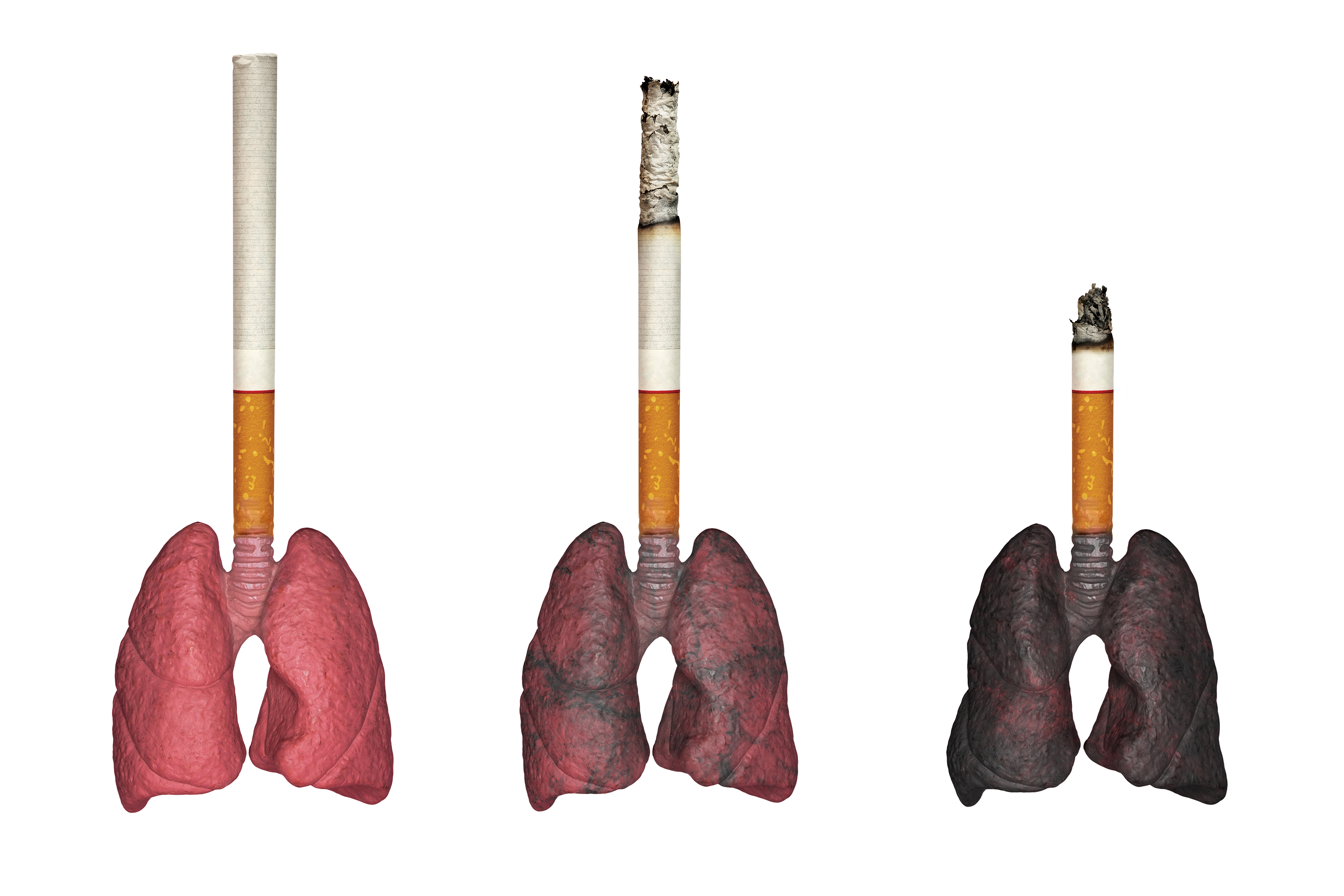
It’s no secret that smoking is a dangerous activity. Tobacco use harms every organ in your body and is the #1 cause of preventable death in the U.S.3 However, once you stop smoking your body goes to work repairing the damage that cigarettes have caused. You may be wondering whether your lungs heal or if you can clean your lungs after quitting smoking.
Read on to learn how smoking can damage your respiratory system, how lungs start to recover after quitting smoking and what else you can do to help improve your lung health.
How Smoking Hurts Your Lungs
Smoking cigarettes can hurt the delicate tissues of the lungs and can keep them from functioning properly. Cigarettes can harm the tissue of the lungs and can increase the risk for diseases such as emphysema and chronic obstructive pulmonary disease (COPD).1Cigarette smoking contains a mix of over 7,000 chemicals, some of which displace the oxygen in your blood. One of these is acrolein, which can lead to irreversible lung damage over time, and can cause a sore throat within minutes.1 Tobacco smoke contains carbon monoxide, which displaces the oxygen in your blood, meaning your major organs aren’t getting the oxygen that they need to function properly.1
No matter how old you are, cigarette smoking can have major consequences on the lungs. Mothers who smoke during pregnancy can give birth to babies with damages of smoking.1 Teens who smoke cigarettes may find that smoking has impeded the growth and development of their lungs, which may never grow to full size or perform at peak capacity.1 Smoking also destroys the cilia, which are tiny hairs in your airway that keep dirt and mucus out of your lungs.1 With this barrier removed, long term or heavy smokers develop a chronic cough.
People with COPD experience difficulty breathing and die because of lack of air.1Smokers are more than 20 times more likely to develop lung cancer than nonsmokers.1Cigarette smoking can also lead to other respiratory cancers such as oropharynx, larynx, trachea, and bronchus.1
Other respiratory diseases that are caused or worsened by smoking cigarettes include:
- Lower oxygen to the heart and other tissues in the body, which can increase the risk for coronary artery disease, peripheral artery disease and diabetes.3
- Poor lung function which can lead to asthma, bronchitis and emphysema.3
Additionally, smoking can affect your immune system and hurt your ability to fight off diseases that attack your lungs.
How Your Lungs Heal After Smoking
As soon as you quit smoking, your body starts to fix the damage caused by cigarette smoke. After eight hours of being smoke-free, your blood will contain lower levels of carbon monoxide.3 Your lung function begins to improve and your heart attack risk drops three months after quitting.2 Coughing and shortness of breath decrease in one to nine months.2 After ten years, your risk of getting cancer of the mouth, throat or esophagus is halved and your risk of dying from lung cancer decreases as well.2
The body does more to heal itself. Learn what happens when you stop smoking
How to Clean Your Lungs After Quitting Smoking
Once you’ve made the decision to quit smoking, you may be looking for ways to help your body recover. If you’re wondering how to clean your lungs after quitting smoking, you’ll be pleased to know that there are steps you can take to improve the health of your lungs. Lungs are self-cleaning organs that will begin to heal themselves once they are no longer exposed to pollutants.4The best thing you can do to help your lungs stay healthy is to avoid harmful toxins like cigarette smoke and pollution.
Apart from quitting smoking, there are a few other steps you can take to ensure that your lungs are healthy:
- Adjust your diet. If smoking has given you a chronic condition, eating foods rich in antioxidants and vitamins and nutrients will help keep you healthy.4
- Get regular exercise. Even if you have chronic lung disease from smoking, regular exercise is part of a healthy lifestyle and can assist with the restoration of your lungs.4 Talk to your doctor before starting or changing your exercise routine.
- Check the air quality. Whether you’re in your home or outside, the quality of the air can affect your lungs. Check the Air Quality Index (AQI) to determine the amount of pollution in the air outdoors, and make sure you’re keeping your home clean so that dust and cleaning chemicals don’t affect the air indoors.4
Can You Detox Your Lungs?
There are lots of products that are marketed to smokers who have recently quit. There is a whole host of pills, vitamins, oils and more that are branded as cure-alls for lung damage caused by smoking and claim to reverse years of smoke damage. Don’t trust quick fixes and detox supplements.4
Many of the detoxing claims made by companies selling products that promise a quick fix are unproven and exaggerated. Some of these products can do more harm than good, especially those that can be inhaled.4 Most of these detox products are not approved by the FDA and lack scientific data that would allow them to be recommended as remedies.4
Thankfully, if you’re serious about quitting smoking, your lungs will work to repair themselves over time.
If you’ve made the decision to quit smoking but need help, lean on your community for support and try smoking cessation products. Double your chances of quitting with Nicorette mini Lozenges, which relieve cravings in a small, more discreet size. Nicorette mini Lozenges start to relieve cravings in just 3 minutes.*
*4mg lozenge compared to placebo

